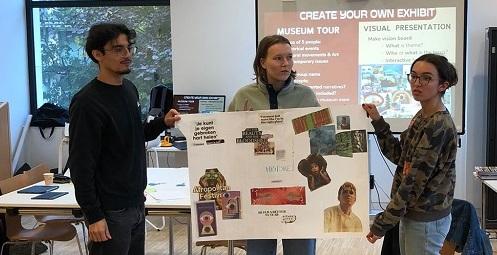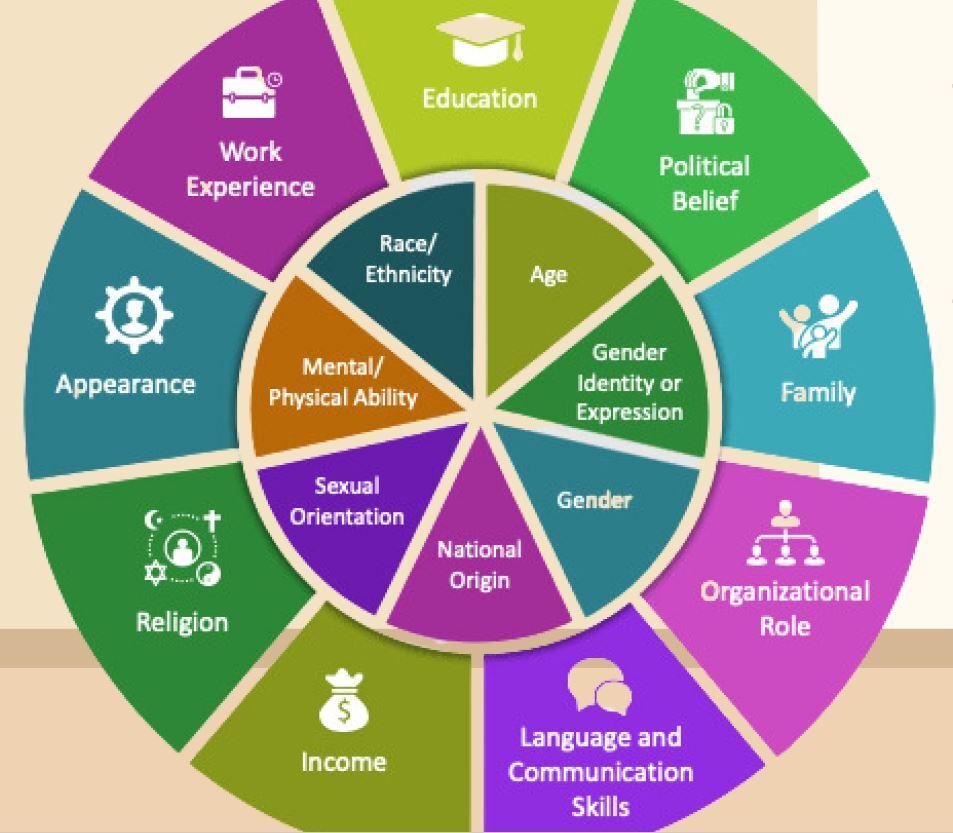
by Annelies van Rijen, outreach coordinator
Overview
Over the coming year, invited speakers will support the participants of Echoes in developing their own critical and creative perspectives on museum practices. They will help the collective in selecting the ‘missing’ narratives that they wish to exhibit in the House of European History.
Fadima works as a policy advisor on diversity and inclusion for the University of Antwerp and is a youth worker for Girls in the City, a project that aims at empowering girls and non-binary youth between 12 and 18 years in Antwerp. The objectives of her workshop were as follows:
- Raise awareness of the concepts of neutrality and inclusion in the context of a historical museum
- Develop a critical and personal view of the choices museum’s make in presenting history
- Interactive exploration of the permanent exhibition

Does neutrality exist?
Fadima and the collective then continued to explore the meaning of neutrality in museums. On the one hand, people see museums as organisations with a historical legacy that preserve and educate based on scientific and historical standards. They enjoy public trust and have authority, they wish to be inclusive and accessible and there is an overall desire in these organisations to avoid conflict.
At the same time, curatorial choices are at the basis of what is and what is not on display in a museum. These choices also influence the interpretation and framing of topics and objects. Museum professionals make these decisions in a cultural and political context and these choices are reflections of societal values. Other aspects to take into consideration when thinking about neutrality in museums are the different ways in which museums are funded as well as the colonial legacy of many museums.
In this context, two approaches to diversity are possible. One is to say “I don’t see colour! Everyone is equal! A standard solution is sufficient.” Another is to acknowledge the following: “I see colour. People are different and have different needs. We will need multiple solutions.”
With the first approach, Fadima stressed that being treated equally is not problematic in and of itself but that it is important to continuously ask oneself in relation to whom or what one is continuously referred to when stressing the importance of equality.

Create your own exhibit
The workshop ended with an interactive exercise. The group split into three and each group visited the permanent exhibition with the following questions in mind:
- What narratives are currently missing in the exhibit and which themes and stories could be added?
- How can underrepresented European communities be included?
- How can the exhibit be more inclusive and accessible to diverse audiences?
- How will the exhibit invite visitors to think critically and empathise with the subject?
The workshop ended with the groups presenting their ideas on a vision board. The following points were discussed for the upcoming exhibition:
- Bring forward personal histories that can evoke more emotions.
- An exhibition that puts forward the voices of young people who have not experienced a history but who are the product of that history.
- Shine a light on histories of resistance and demonstration that still echo with us today.
- Look at history through other glasses, different gazes.
- Aim for a visitor’s experience that underlines the feeling: je suis là, je suis à ma place.
- Create an immersive experience such as on the 5th floor with the apartment setting.
- Empower the visitor to contribute to the exhibition: a museum for the visitor, with the visitor.
- Exhibit an intergenerational immersive experience and include footage of people of today, because we may feel closer to them.
If you wish you to be kept informed about Echoes, register for our newsletter, as more news will follow soon, and follow our social media accounts. If you have any questions about the project, annelies [dot] vanrijen ext [dot] europarl [dot] europa [dot] eu (contact Annelies van Rijen), the project manager of Echoes.
ext [dot] europarl [dot] europa [dot] eu (contact Annelies van Rijen), the project manager of Echoes.
This workshop was conceived in collaboration with Ama Korangteng-Kumi, founder of MINO Art Space.

